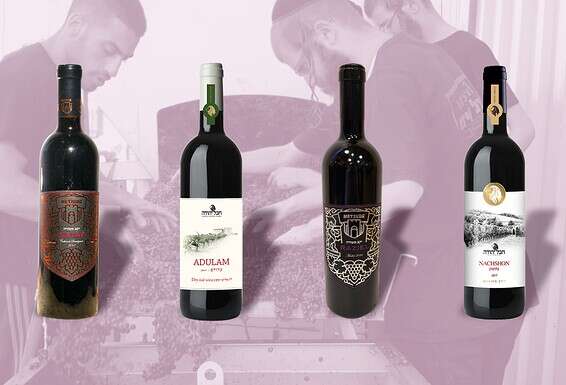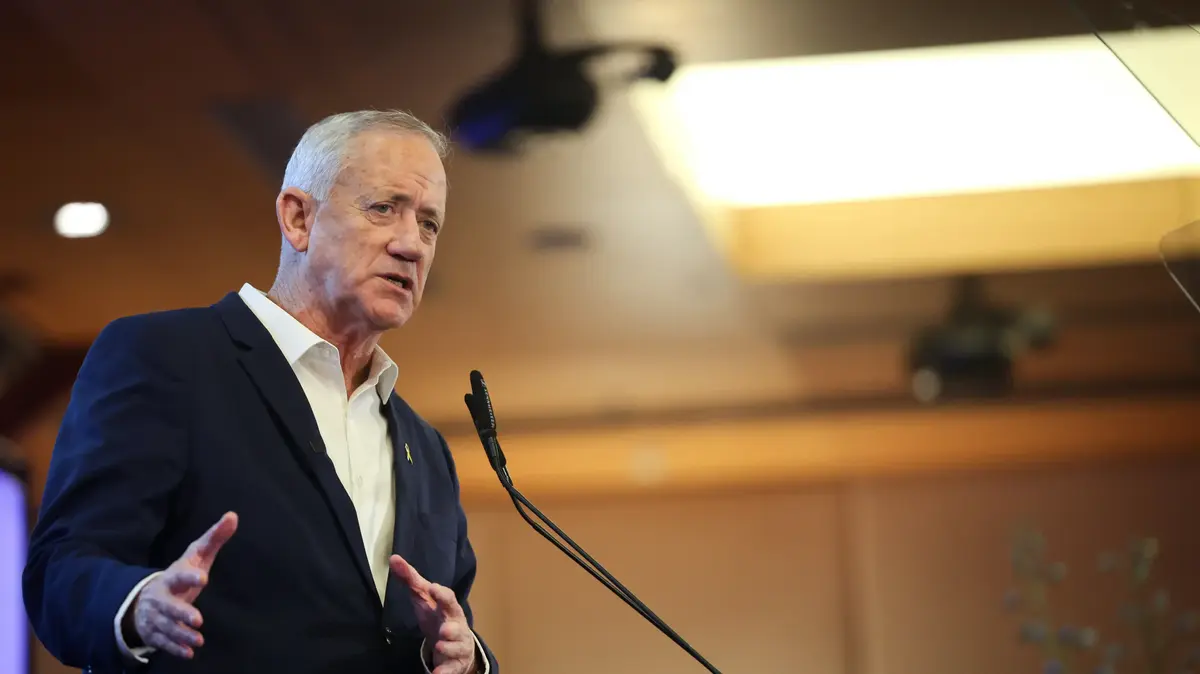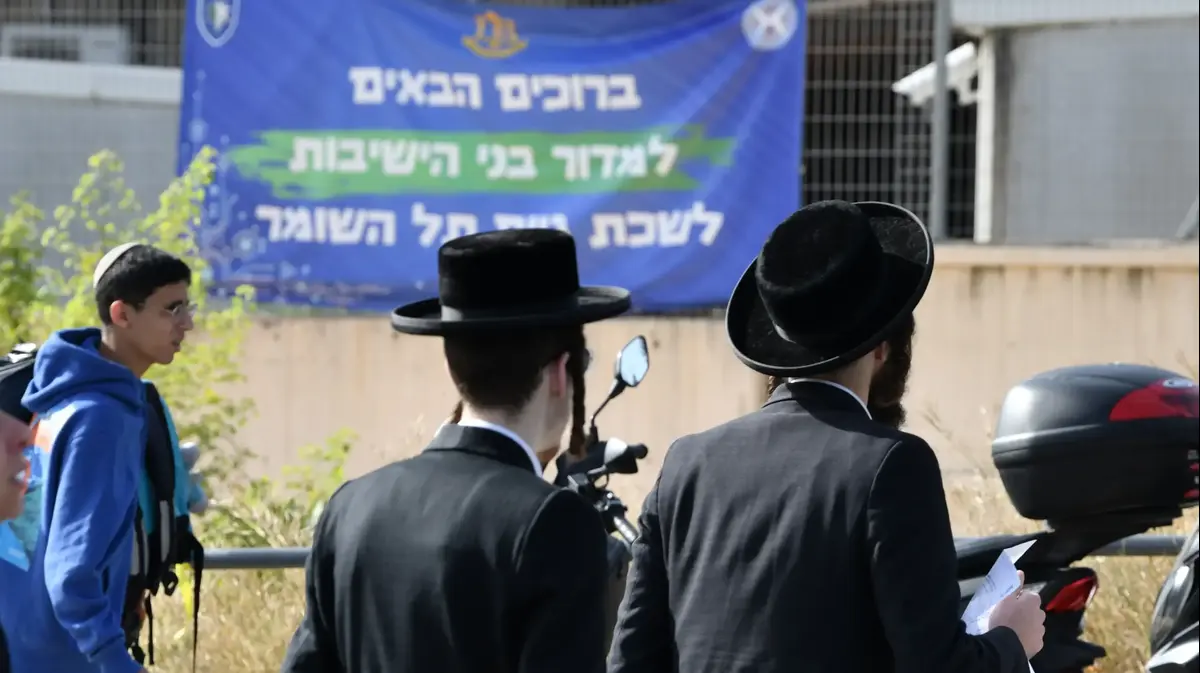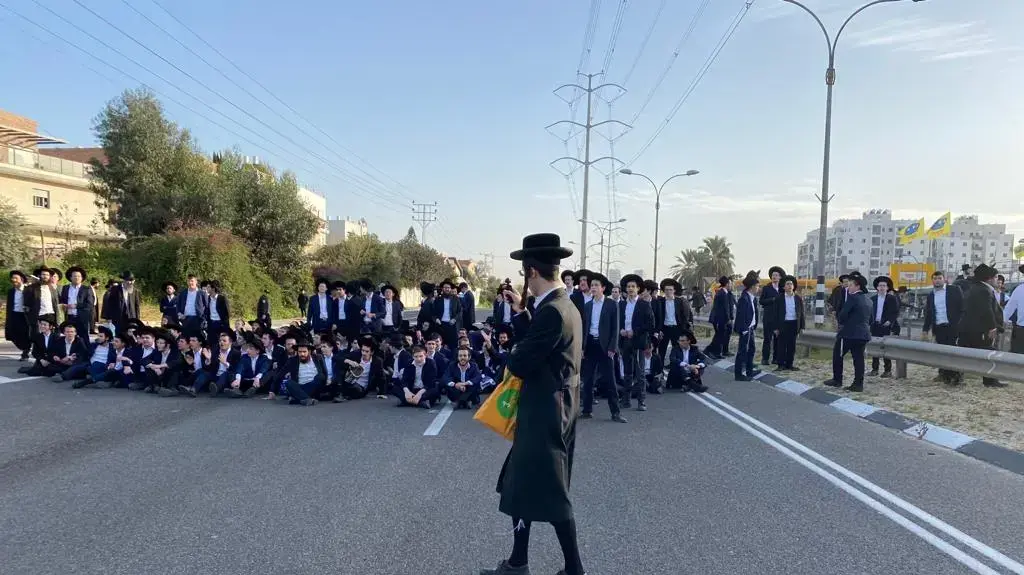Not just Kiddush: When wine enters - blessed social connections emerge • One winemaker: "Many times wonderful friendships are created between ultra-Orthodox and secular people"
Practical studies
Joining the ultra-Orthodox sector to the wine scene in Israel is not really surprising. After all, wine is a "billet-in" in Jewish life culture - sanctification every Saturday, as part of the joyous holidays, saying "cheers" in Hasidic gatherings and more. And yet, only a decade and a half or two after the boutique wineries bloom in Israel, more and more ultra-Orthodox young people are interested in wine, wine tasting, setting up wine forums (including "tasters", "kosher wines" and "kosher wine & food"), Wine collections, meet for special tastings and even study and produce wine - and they also carry the older age range. If until recently, the popular wines in the sector were terribly sweetened kiddush wines, today we are witnessing a real revolution and a clear shift towards the quality dry wines.
The Haredi-Jerusalem Lomda Institute, a vocational training center, runs a wine studies program that combines theoretical and practical studies in wine production and the establishment of boutique wineries. The fifth cycle of the program, which has already earned itself a reputation and reputation among the sector's wine enthusiasts, is nearing completion. The program includes veteran winemaker Patrick Habibu, Binyamina and Jerusalem Ex Winery, and is currently the "La Citadel de Diamant" winery in Ruth.
"The human diversity in these courses is wonderful - coming from all over the ultra-Orthodox sector, and their level of questions sometimes challenges me as well. They study wine in pepper, just like they study Gemara," he says. Some graduates have already joined the wine industry as winemakers, as boutique wineries, and even as overseers of large wineries or kosher wine production abroad. We counted at least ten ultra-Orthodox boutique wineries already operating today, here are two examples.
The language gaps
Abraham Posen (33) is a first-year graduate of Lomde. Former Bnei Braki and current Lod resident, who belongs to the stream called "Visionnaisniks" in the ultra-Orthodox jargon. The winery was also used by the winery for the past two years. "The winery was founded by Yair Sternhartz, an ultra-Orthodox real estate developer, in a redevelopment building in the Geula neighborhood of Jerusalem, but very quickly the place became narrower than containing everything, and we personally moved to our current home in Givat Hayarim. "From special slaughter and self-made products, I was also intrigued to know how to make wine. When I joined my studies, I just conquered the field."
The winery is located next to a natural grove on a hillside and overlooks spectacular views. Picnic benches and hammocks are scattered around as well as fruit trees and BBQ places. Quite a few groups and loners come there for visits and tastings, "and many times we have wonderful friendships between the ultra-Orthodox and the secular," says Eliyahu Bash, winery manager for the past year.
"We pick grapes mainly from the Upper Galilee, the Western Galilee and Samaria," Posen says, "but also from other regions, and the one who accompanies me and advises the winery is Sasson Ben Aharon Muni Winery, whose knowledge and experience are truly treasure."
The winery's sales, as well as the sales of other ultra-Orthodox-owned wineries, are for the most part directed at consumers from the sector at this stage, and not just by choice - there is still a gap between the level of wine and ultra-Orthodox marketing and language ability, which does not always meet with the Israeli-secular: Coming to the Tel Aviv store to offer our wines, straight identify me as a kosher overseer and not as a legitimate wine salesman, "says Moti Abovitz, a puppy devotee who markets the wines of the Yehuda Winery," and only if you agree to taste the wine and develop a conversation, you can also see through the suit My black ... "
Kosher - and high quality
Rabbi Gabriel Adler (41), a rabbi Hasid who is a rabbi who is a rabbi in Jerusalem, was established at the Yehuda region winery, with the understanding that "as an educator, it will be very difficult for me to fund children's weddings." He first started marketing wine from other wineries, and after a few years decided to produce his own wine, not before receiving the blessing of the way from Admor Gur. He purchased advanced equipment ("I didn't spare anything, I bought the best equipment there"), rented a seat in a deserted seat. , Near Beit Shemesh, and in the last vintage he has already installed tens of thousands of liters of wine, with the help of the estimated winemaker Yotam Sharon, who signed the bottles.
At their customers' demand, the segment's wineries are currently focusing mainly on red wines and a lush and fruit-packed wine style. "In the ultra-Orthodox, white wine has not yet caught on. It is considered inferior, not really wine, perhaps because wine sources have always been red," says Adler, and Bash adds, "No white shine is ready for sale sooner than red, which can help the business flow - demand for it. In the low sector, on the other hand, there is an ever-expanding layer of ultra-Orthodox who are looking for quality red wine in the hachshara and have no problem spending money on it. This public needs well-known wine brands like Castel, Golan Heights or Yatir, but is also looking to diversify with boutique wineries with the right training. "
Official tasting
Cabernet Sauvignon "Steph" 2017, Citadel Winery - Cabernet is well made from the winery's entrance series, whose grapes come mainly from the Judean Mountains. Threads are soaked cold before squeezing to get flavors. The color is dark and opaque burgundy-black wine, cherry nose and vanilla, wide and velvety mouth. 100 NIS.
Merlot "Raziel", 2016, Citadel Winery - Installed from grapes grown in the Upper Galilee vineyard and aged 18 months in barrels, about 50% of which is new. A subdued scent of dark fruit and ripe, slightly greenish characteristic of a variety and black pepper. Develops nicely in the glass and reveals deep and hidden layers. Powerful and elegant wine. 200 NIS.
Adulam 2017, Judah Mountains Winery - An exceptional wine in the ultra-Orthodox landscape, which is not laden with fruit and sweetness, but exhibits good acidity and elegance. It is from the base screen of the winery installed from Cabernet, Merlot, Pardo, and a little boat. The wine has not been filtered. The wine body is medium and the acidity is balanced. Put him in good condition for at least six months and he'll show off what's in it. 100 NIS.
In Nahshon 2017, Judah Mountains Winery - a blend based on most (55%) cabernet, a quarter of Pardo and 20% of Merlot, and aged 20 months in a barrel. Lots of ripe cherries in the nose, dark chocolate and black pepper. In the juicy and harmonious wine palate, almost chewy with tannins that will last it for many more years. Wonderful wine! NIS 155.















